Taliesin Ben Beirdd actually existed. Though perhaps not everything told of his past could have been witnessed in the waking world.
I know exactly what you're wondering. It's what everyone thinks, when they first encounter the heroes of Welsh legend.
You pronounce his name: Taliesin (Tally-ess-sin) Ben Beirdd (Ben Beerth). The surname is a title translating as Chief Bard. But in this story, he hasn't earned that yet. His first name means Shining Brow. Nor has he acquired that epithet either, at the point where we come in.
Pull up to the fire and let me tell the tale of Taliesin.
















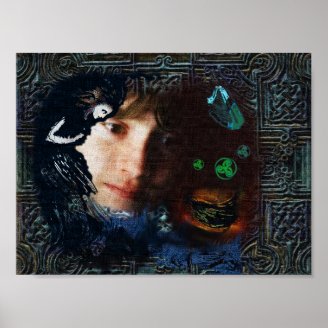
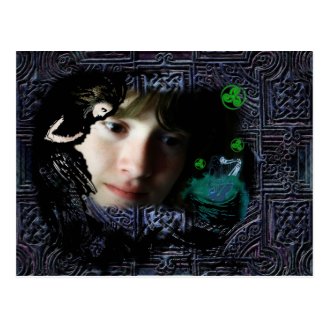













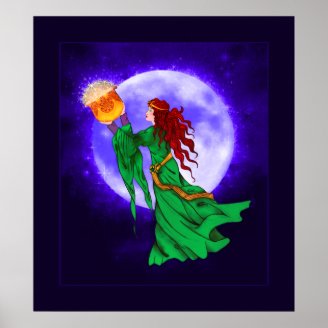
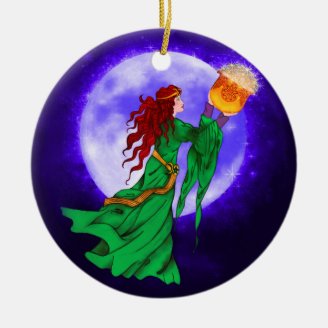












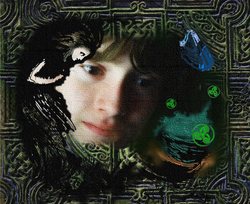

 St Tydecho's Churches in West Waleson 09/03/2014
St Tydecho's Churches in West Waleson 09/03/2014
 Goodies for an Outlander Premiere Partyon 03/06/2015
Goodies for an Outlander Premiere Partyon 03/06/2015
 Holocaust Memorial Day Interview with Rainer Höss, Grandson of Rudolf Architect of Auschwitzon 01/24/2015
Holocaust Memorial Day Interview with Rainer Höss, Grandson of Rudolf Architect of Auschwitzon 01/24/2015
 Romantic Valentine Gifts for an Outlander Fanon 01/16/2015
Romantic Valentine Gifts for an Outlander Fanon 01/16/2015


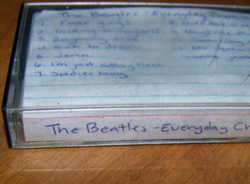
Comments
The honour is all mine. Thank YOU.
Whoo I made it in! Thank you so much for letting me read this on my channel, its a great story and beautifully written.
Sorry, I don't know how I managed to become so side-tracked for four days, that I neglected to answer any of these comments. -.-
I was about to ask which difficulties regarding 'essence', then sat and considered it for myself. Just off the top of my head, in Wicca alone, there are three or four distinct meanings. I take your point, and accept your alternative rendering.
As for Druidic initiation and Shamanism, I can definitely see the link there. But descriptive of the religion as a whole? I'd have to contemplate that some more.
Once we use the word essence, we run into metaphysical difficulties, and scholastic thought tied itself in knots dealing with essence. I would prefer to say contact with the divine and leave the word essence out of the picture.
It would be worth exploring the connection between druidic initiation and shamanism. I suggest that druidry developed/evolved out of shamanic practices, as did prophecy..
Isn't 'contact with God' just another way of saying 'in touch with the divine essence'? Expanding consciousness, touching awen and seeing beyond the doors of perception anyway.
I'm glad that we're in accord on the whole Gwion initiation into Taliesin thing. It always makes me feel like I'm definitely on the right lines when you agree!
Moses was,pre-Christian, and and the radiance was thought to have come from his contact with God.
I did think that when Gwion was shut up for three days it might have been in a barrow/cave. However, the link of the myth to bardic initiation could be correct, as myth and ritual are thought to have close links. Myths explain rituals;rituals enact myth.
Ember - *preen* I'm sooo proud of the art! I'm no artist, but that came out so well. *happy face*
Ember - Outside the Celtic tales, I should imagine Moses is the most famous of the babies in a basket on the water stories. This is the bit where every other culture with the same legend comes in and says, 'No! I think of 'insert name' before Taliesin and Moses!'
There are whole horror stories to be written on the subject of a sentient being trapped in a womb. But then you think further and realize that we were ALL sentient in there! Albeit not an adolescent. In some versions, Gwion is a full grown man, though presented more like the village idiot. Personally I think the versions closest to the mark have Gwion full grown but ordinary, neither idiot nor genius.
Reality is such a subjective quantity in this story, hence I'll very carefully phrase it as - if you were there, witnessing events, I believe you would have seen Gwion shut inside a dark place dedicated to Cerridwen. Perhaps an old, re-purposed long barrow; or a stone cell; or a wooden coffin on a ship.
Possibly he would have been drugged, or undergone some kind of sensory deprivation, or simply meditated without food and water. (Rule of threes - three minutes without air, THREE DAYS WITHOUT WATER, three weeks without food...)
Between Llanuwchllyn/Bala and Mawddwy, there's a part where the river goes underground, then emerges as a waterfall above LLanymawddwy - i.e. the place so linked with Tydecho and Tegfedd. Can you see where my brain has been going with this? I suspected that Tegfedd (beautiful graves) was all about a Bardic initiation. The Song of Taliesin fills in several blanks, in the right vicinity, but no smoking gun. It's all so very circumstantial.
Or we can go further south, in the headland above the northern mountains of Aberyswyth. The place-name evidence there pings sooo much with Taliesin and Cerridwen, despite being a few miles away from Bala.
Either way, it's fairly obvious that the initiate eventually ended up in a skin on the open waters of Cardigan Bay. (This is the sea that you saw when we were at Aberystwyth. We went inland, but fundamentally followed the coastline up to Gwynedd and Caernafon.) Some interpret it as him being in a coracle, which does register with an alternative telling.
It's also worth knowing that, while the Welsh seas are governed by the God Dylan Eil Ton, Cardigan Bay is poetically called Cerridwen's Cauldron.
I wish you could hear the Song of Taliesin in Welsh. The metre and poetry is sublime!
Frank - Now I did not know that Moses was radiant too, and presumably the veil means that it was also his brow. So that described his initiation into the Christian Mysteries too?
PS- your cover art is very well done :)